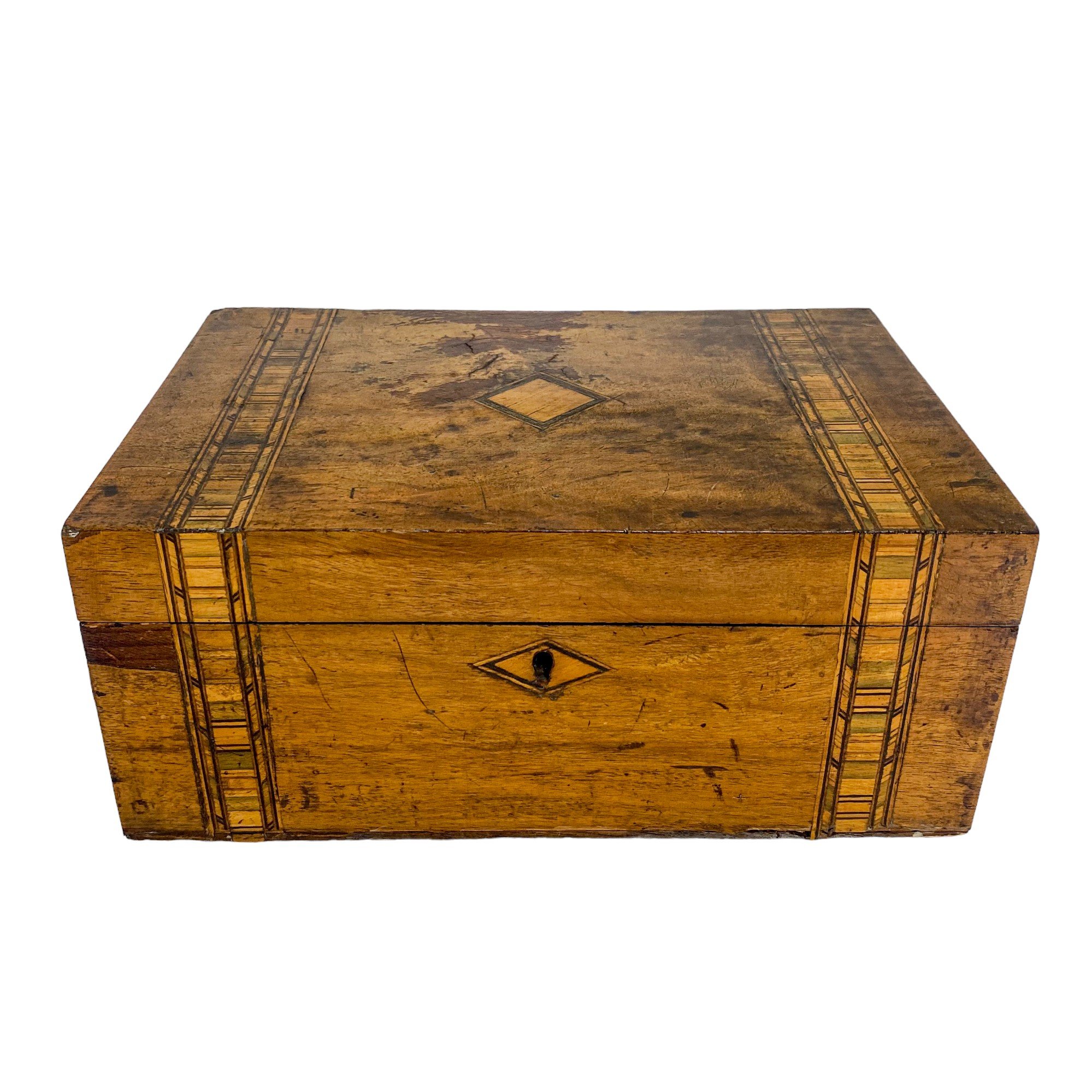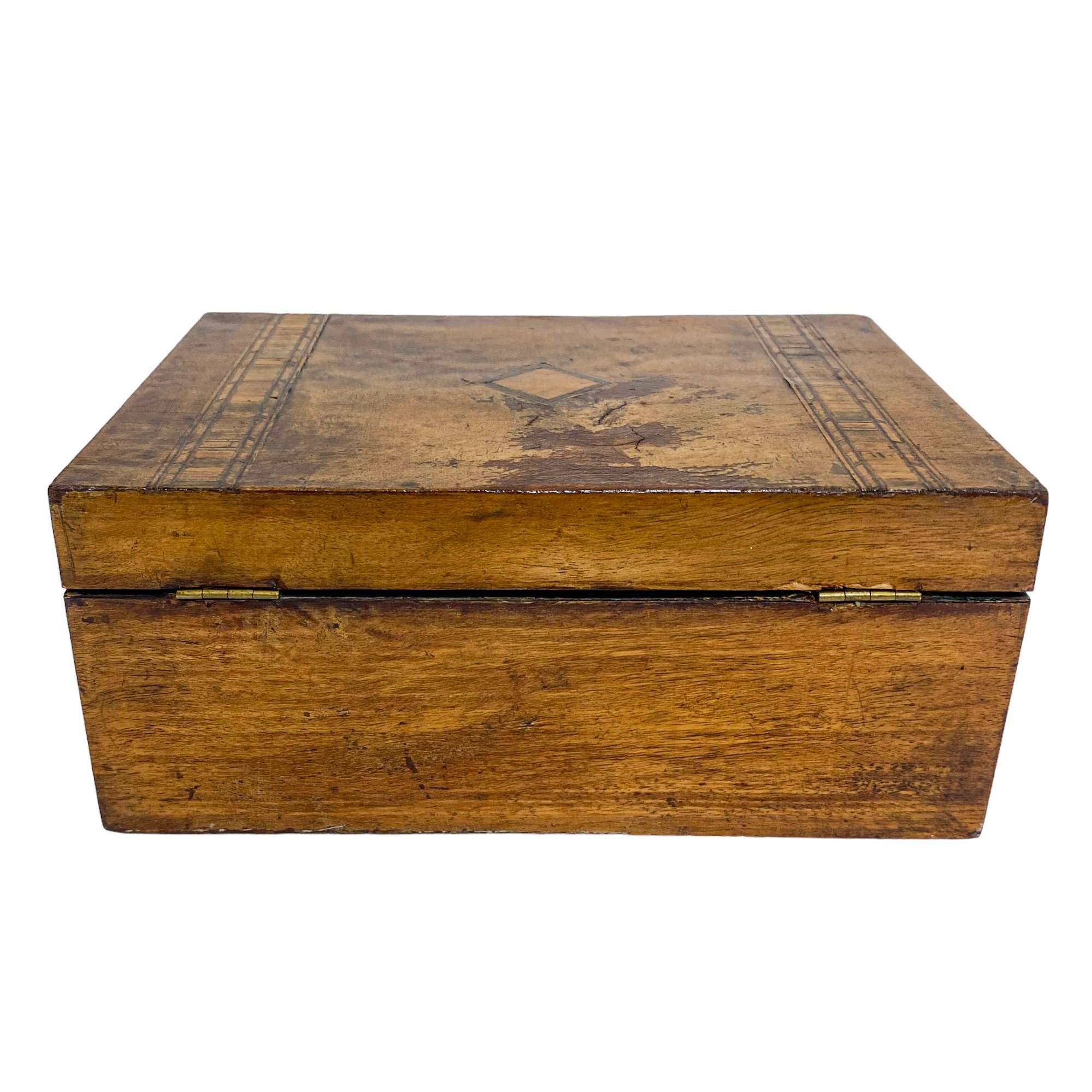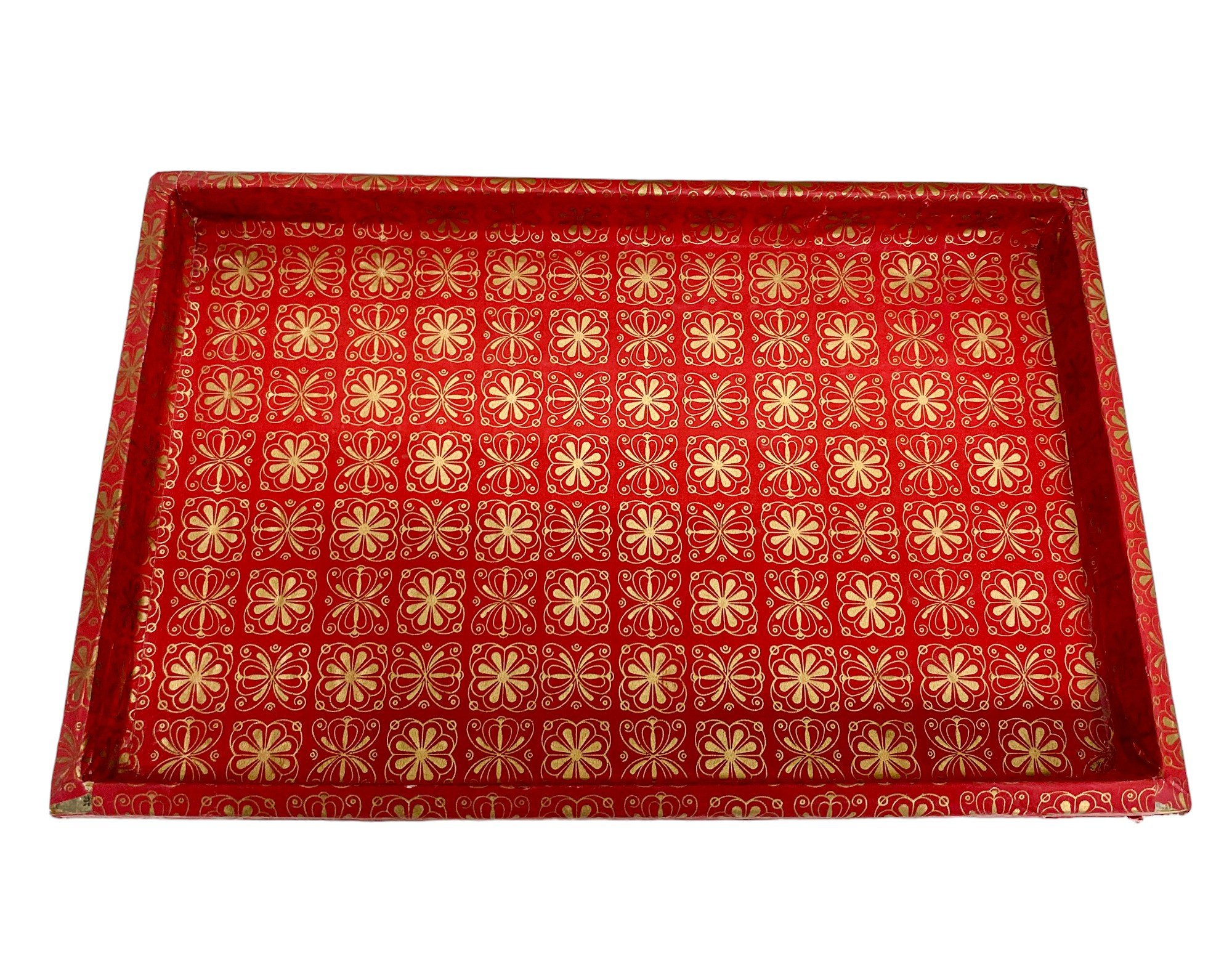 Image 1 of 11
Image 1 of 11

 Image 2 of 11
Image 2 of 11

 Image 3 of 11
Image 3 of 11

 Image 4 of 11
Image 4 of 11

 Image 5 of 11
Image 5 of 11

 Image 6 of 11
Image 6 of 11

 Image 7 of 11
Image 7 of 11

 Image 8 of 11
Image 8 of 11

 Image 9 of 11
Image 9 of 11

 Image 10 of 11
Image 10 of 11

 Image 11 of 11
Image 11 of 11












Victorian Tunbridge Ware workbox with lift out lid; inlaid with two vertical geometric bands
Victorian Tunbridge Ware workbox inlaid with two vertical geometric bands.. The body is panelled with burr walnut and the marquetry is done with cross banded boxwood, kingwood, ebony and satinwood among others. The lid has a vacant rhombus-shaped cartouche; the same design is repeated around the key escutcheon. The interior is lined with vivid red and gold paper; box comes with a lid which lifts to reveal additional storage.
Very attractive example of this English artform with a bold and striking design and warm patina to the wood.
Royal Tunbridge Wells, England, c. 1860's
815 g
11 cm tall
25 cm wide
17 cm deep
Good antique condition. Some surface scratches, crazing and nicks to the external veneer; wear inside; wear to paper lining.
Victorian Tunbridge Ware workbox inlaid with two vertical geometric bands.. The body is panelled with burr walnut and the marquetry is done with cross banded boxwood, kingwood, ebony and satinwood among others. The lid has a vacant rhombus-shaped cartouche; the same design is repeated around the key escutcheon. The interior is lined with vivid red and gold paper; box comes with a lid which lifts to reveal additional storage.
Very attractive example of this English artform with a bold and striking design and warm patina to the wood.
Royal Tunbridge Wells, England, c. 1860's
815 g
11 cm tall
25 cm wide
17 cm deep
Good antique condition. Some surface scratches, crazing and nicks to the external veneer; wear inside; wear to paper lining.
Victorian Tunbridge Ware workbox inlaid with two vertical geometric bands.. The body is panelled with burr walnut and the marquetry is done with cross banded boxwood, kingwood, ebony and satinwood among others. The lid has a vacant rhombus-shaped cartouche; the same design is repeated around the key escutcheon. The interior is lined with vivid red and gold paper; box comes with a lid which lifts to reveal additional storage.
Very attractive example of this English artform with a bold and striking design and warm patina to the wood.
Royal Tunbridge Wells, England, c. 1860's
815 g
11 cm tall
25 cm wide
17 cm deep
Good antique condition. Some surface scratches, crazing and nicks to the external veneer; wear inside; wear to paper lining.
Tunbridge ware is a form of decoratively inlaid woodwork, that is characteristic of Tonbridge and the spa town of Royal Tunbridge Wells in Kent in the 18th and 19th centuries. The decoration typically consists of a mosaic of many very small pieces of different coloured woods that form a pictorial vignette. Shaped rods and slivers of wood were first carefully glued together, then cut into many thin slices of identical pictorial veneer with a fine saw. Elaborately striped and feathered bandings for framing were pre-formed in a similar fashion. Many sorts of wood were employed for the various colours; about 40 were in regular use and only natural colours were used.
In the nineteenth century, Tunbridge ware was highly esteemed nationally as well as locally. The young Princess Victoria, a frequent visitor to the town with her mother the Duchess of Kent, used to buy articles of Tunbridge ware as gifts for her family. Today, these beautiful pieces can only be purchased in antique shops, as none have been made on a commercial basis since 1939.















































